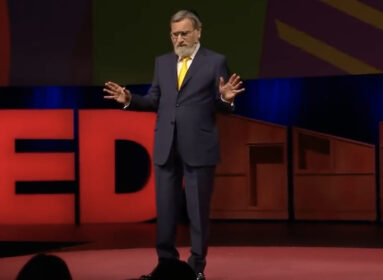JERUSALEM, Israel — Exactly 1,934 days after Hamas kidnapped IDF soldier Gilad Schalit on Israel’s border with Gaza, the Israeli cabinet met Tuesday night, Oct. 11, to approve a deal with the terrorist group that would secure the 25-year old soldier’s release.
In the end, the vote was nearly unanimous, with 26 ministers voting to approve the prisoner exchange deal signed with Hamas, and only three — Foreign Minister Avigdor Lieberman, Strategic Affairs Minister Moshe Ya’alon and National Infrastructures Minister Uzi Landau – voting to reject it.
“The Jewish people is a special people, responsible for one another,” Prime Minister Benjamin Netanyahu said at the opening of the cabinet meeting. “Our sages teach that those who save one Jewish life, it is as if they have saved an entire world. Today, I am bringing a proposal for the saving of Gilad Shalit in order to bring him back, finally, after five years, to his home, to Israel.”
Under the terms of the prisoner swap, Hamas will return Gilad Shalit to Israel, in exchange for the release of 1,027 prisoners, hundreds of who are guilty of some of the worst terrorist atrocities in the Jewish state’s history.
According to the Jerusalem Post, the framework for the deal has been on the table for years, but were stalled when Israel and Hamas could not agree with what to do with terrorists on the list to be released: Israel wanted them deported to Gaza or abroad; Hamas insisted that they be allowed to return to the West Bank. In the end, Israel agreed to let hundreds, but not all, remain in the West Bank, and Hamas removed some names from its list. “There exists a built-in tension between the desire to bring a kidnapped soldier or citizen home, and the need to preserve the security of Israeli citizens,” Netanyahu told the Cabinet, adding that the agreement strikes the right balance between those considerations.
Yoram Cohen, head of Israel’s security agency Shin Bet, said his agency would be able to deal with those returning to the West bank, though his predecessor, Yuval Diskin, was adamantly opposed to letting the prisoners return to the West Bank. Cohen, as well as the heads of the Mossad and the IDF all expressed support for the prisoner exchange deal at the cabinet meeting.
“This is a difficult decision,” said Netanyahu. “My heart is with the families of the terror victims. I understand their suffering, and their distress, because I am one of them. But leadership is judged in moments like this by the ability to make difficult, but correct, decisions.”
The current round of talks was restarted in recent weeks with Egypt acting as a go-between, and German Chancellor Angela Merket and a German mediator taking part.
“There were six rounds of talks…we did this over several months in complete secrecy and we managed to hold them under the radar,” Israel’s negotiator David Meidan told the cabinet. “In the last round, the Shin Bet came in and we initialed a deal without names last week.” The final round of talks began Monday morning and ended on Tuesday.
Netanyahu personally conveyed news of the deal to Shalit’s parents. “I said to them that I am fulfilling my promise and I am returning to them their son and grandson,” he said. “I am happy to have been able to fulfill the goal of redeeming captives, and if all goes well, Gilad will return to Israel in the coming days to his family and people.”
After meeting with President Shimon Peres in Jerusalem on Wednesday, Oct. 12, Shalit’s parents, Noam and Aviva Shalit, thanked the Netanyahu government for its “courageous decision” and paid tribute to the families of the two soldiers killed in the June 2005 attack that led to their son’s capture. “The bereaved families will always be with us and we will always remember Hanan (Barak) and Pavel (Sllutzker) who were killed in the incident,” said Aviva Shalit.
The Shalits then left the encampment in Jerusalem to return to their home in the northern town of Mitzpe Hila.
“The prime minister made a bold decision that was correct, but not simple,” said Peres. “I’m proud of the people of Israel, who can accept democratic decisions even in difficult moments and respect the principle of redeeming captives.”
Israel’s Justice Department will release the names of the prisoners to be exchanged over the next few days. Shalit’s release is expected some time next week.








 Southern New England Jewish Ledger
Southern New England Jewish Ledger










